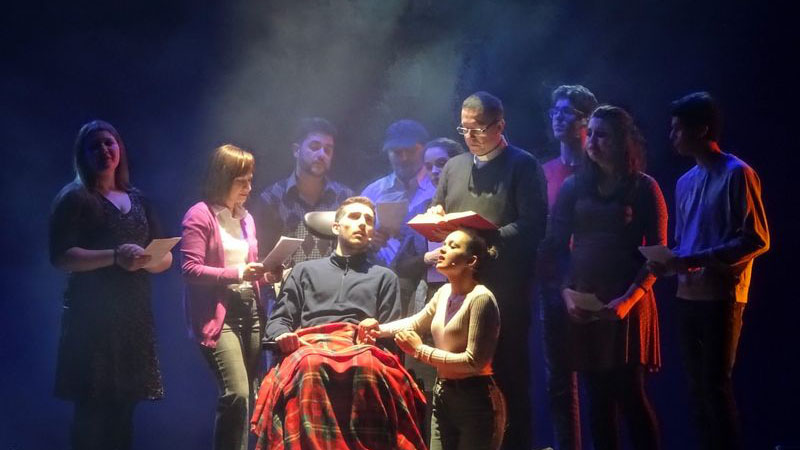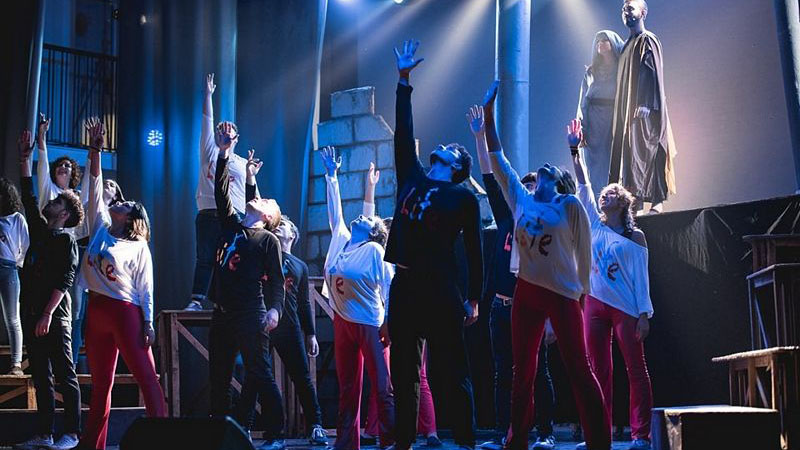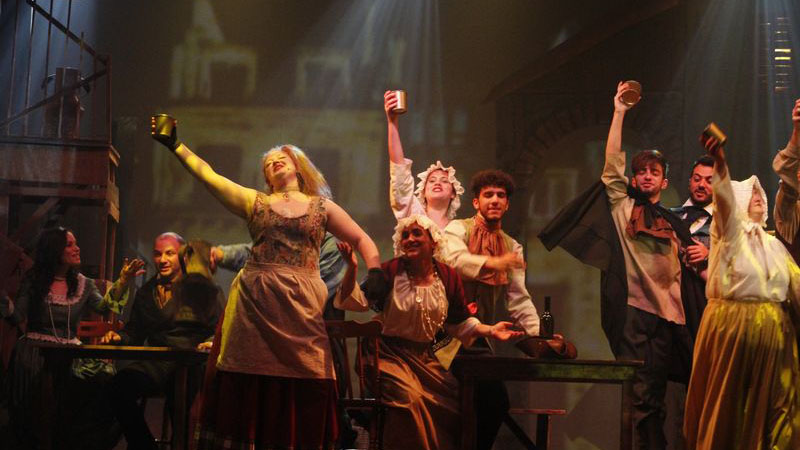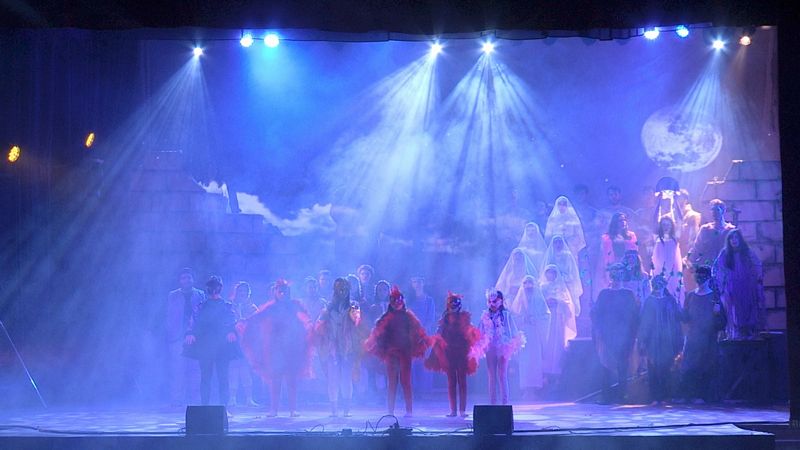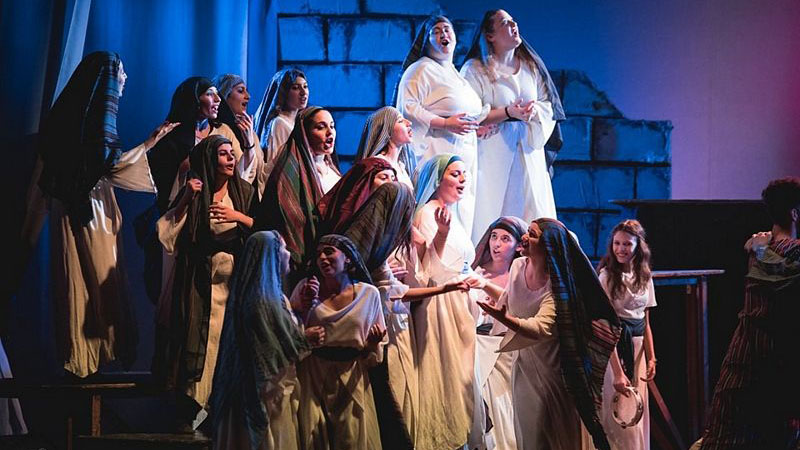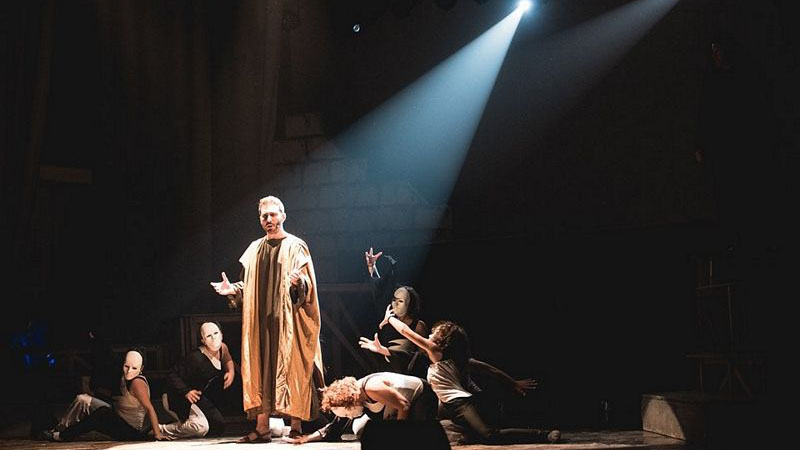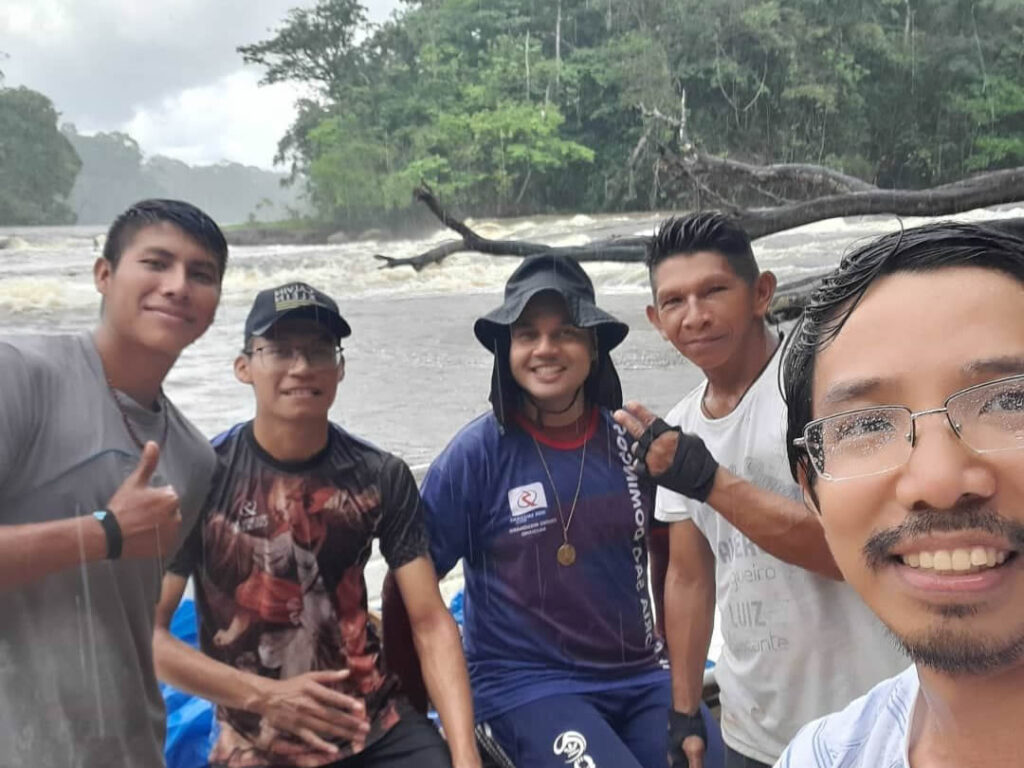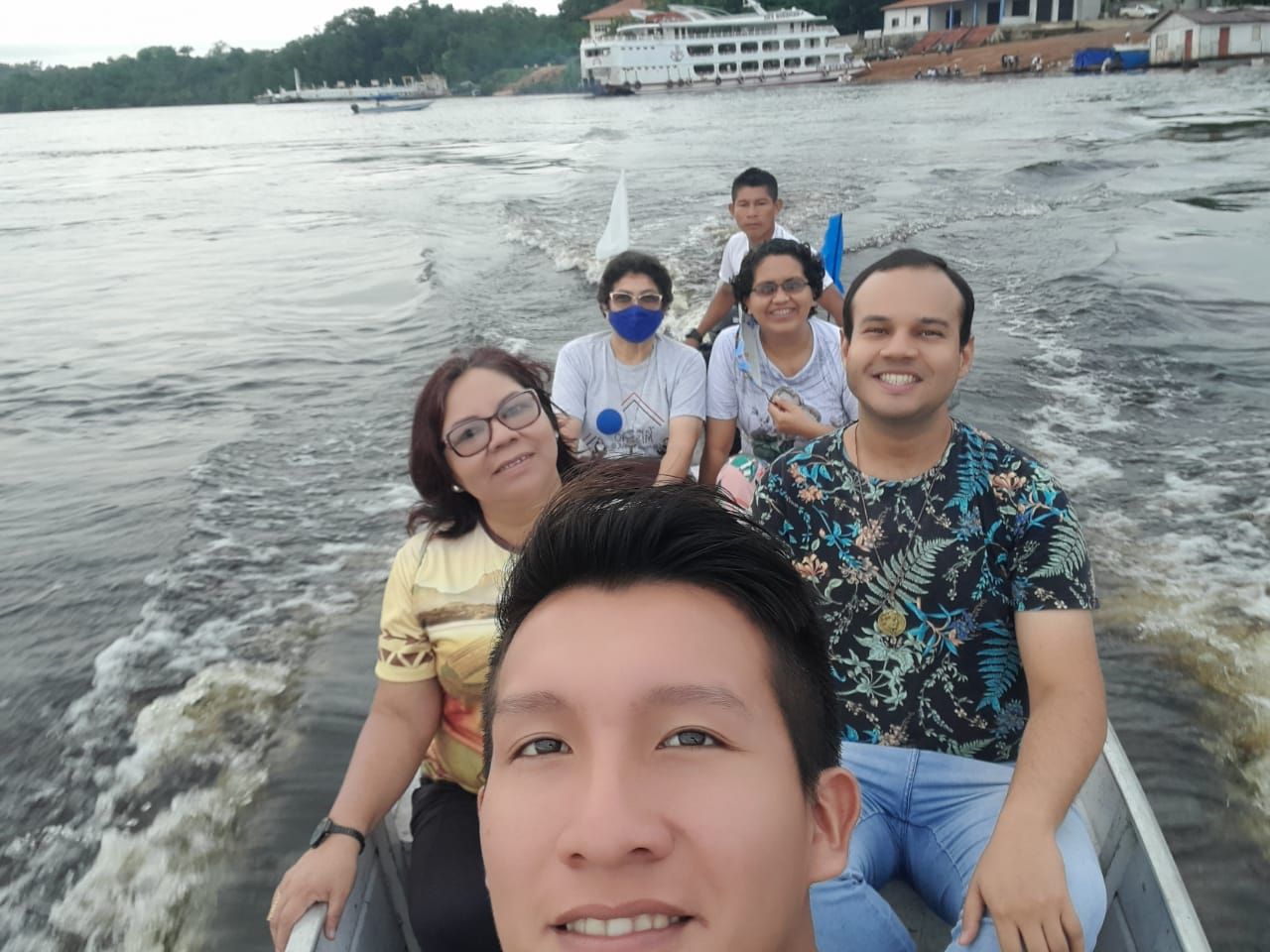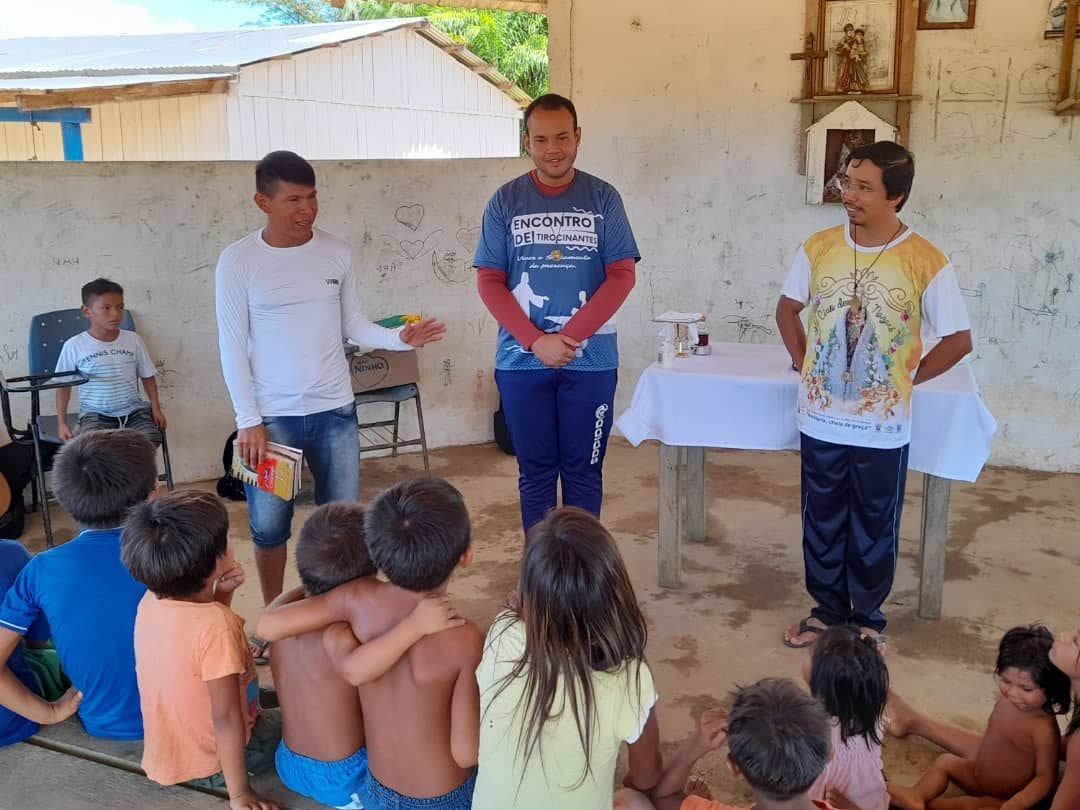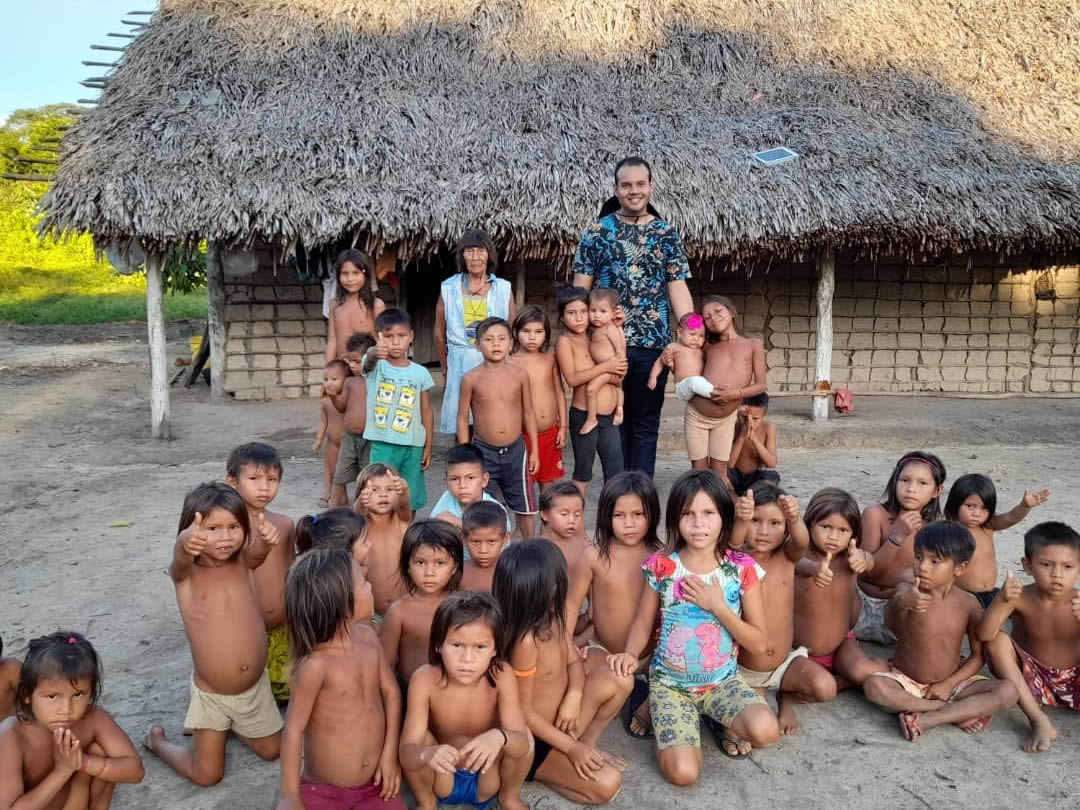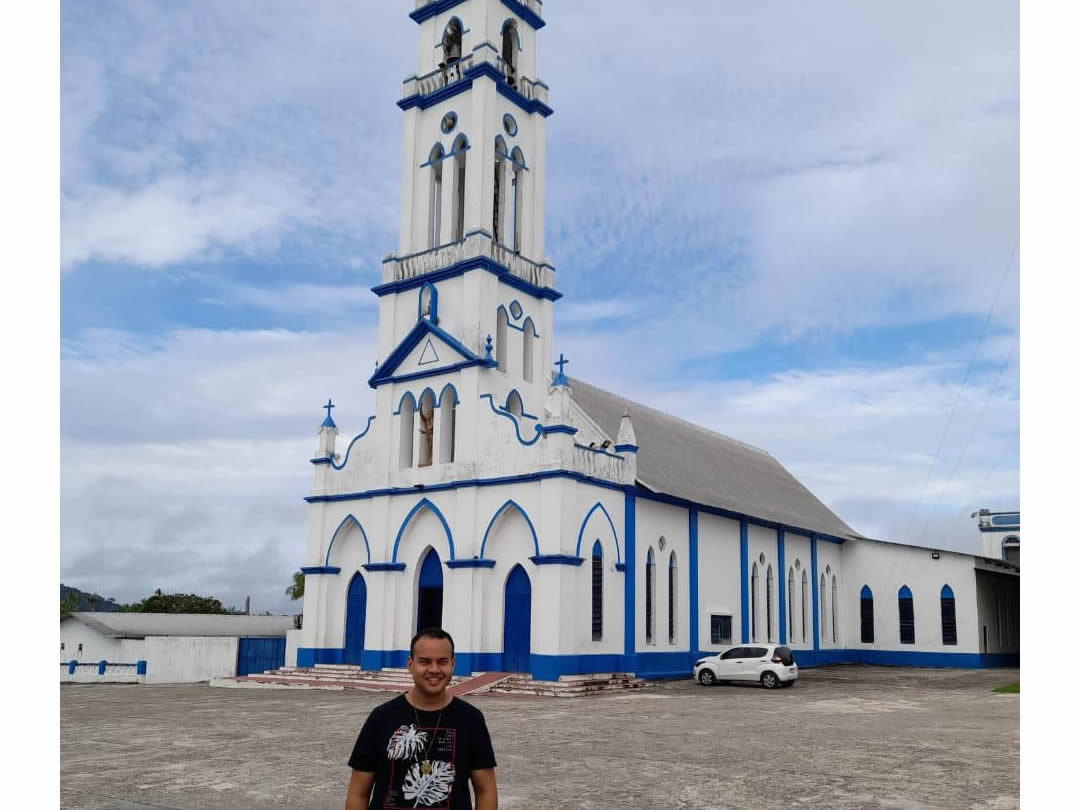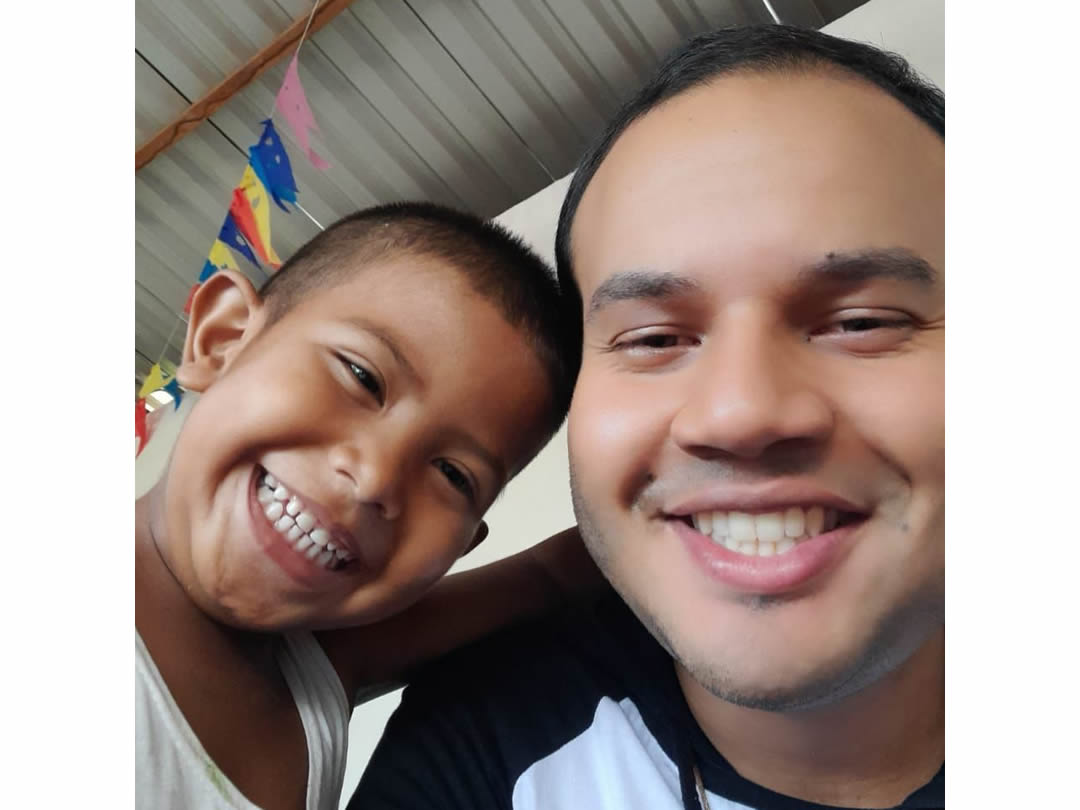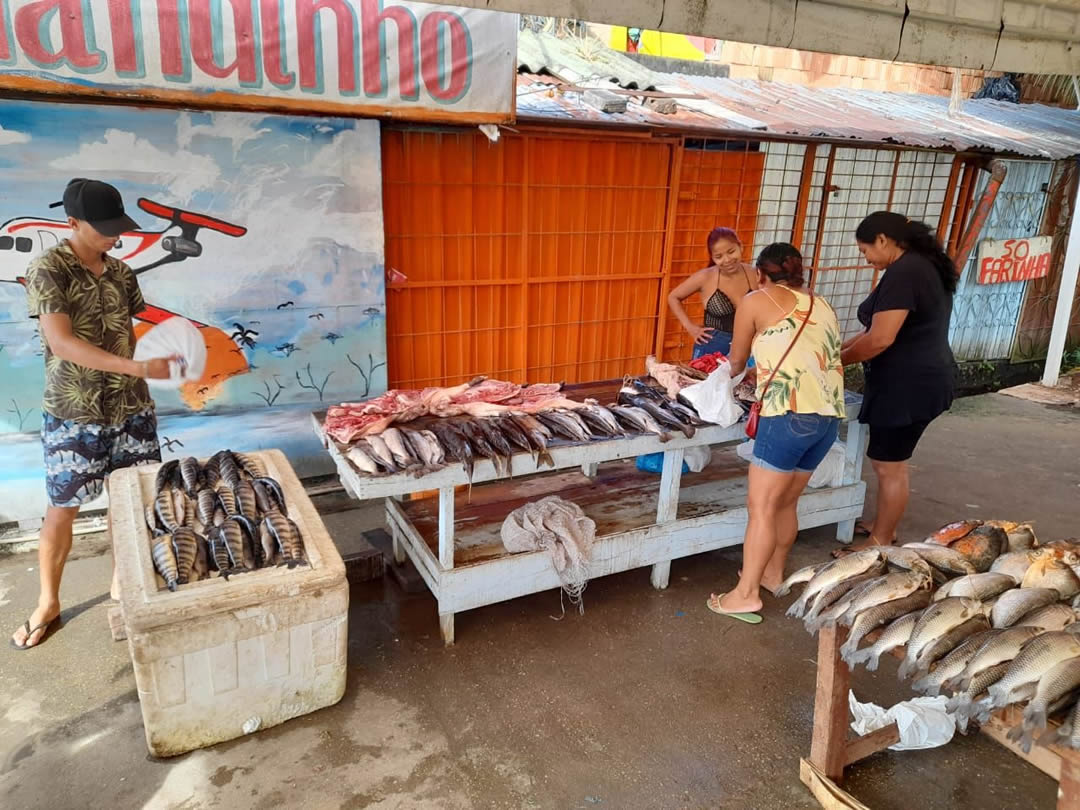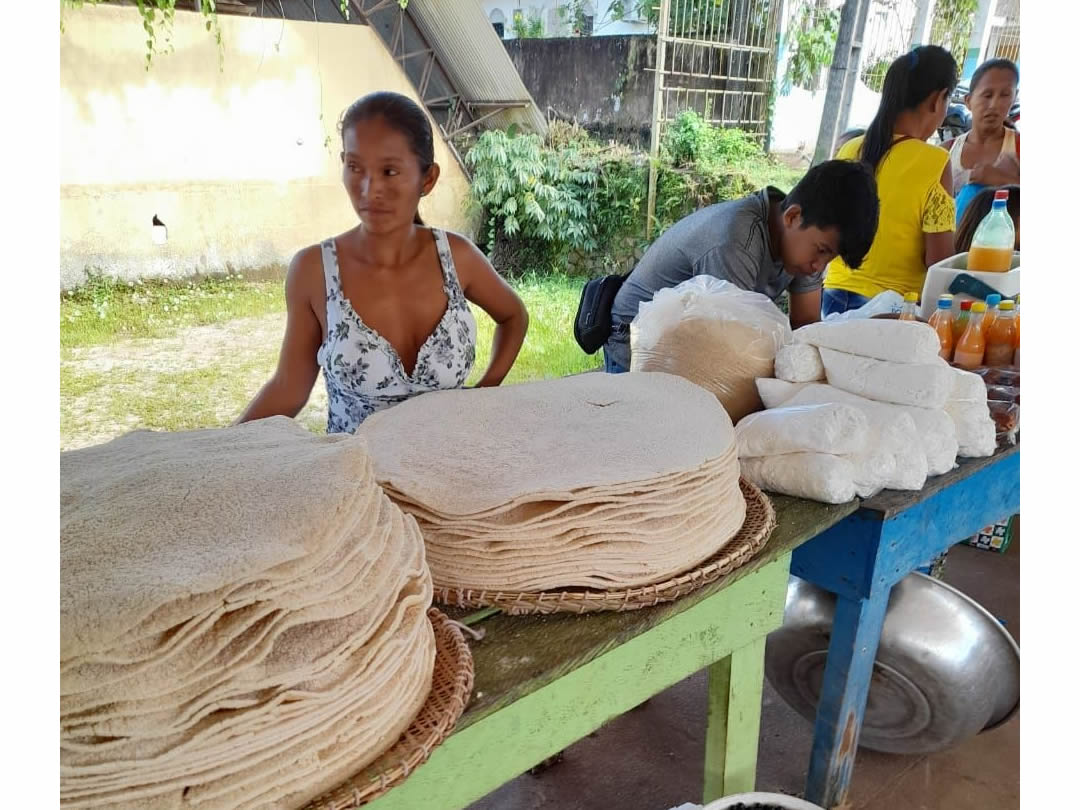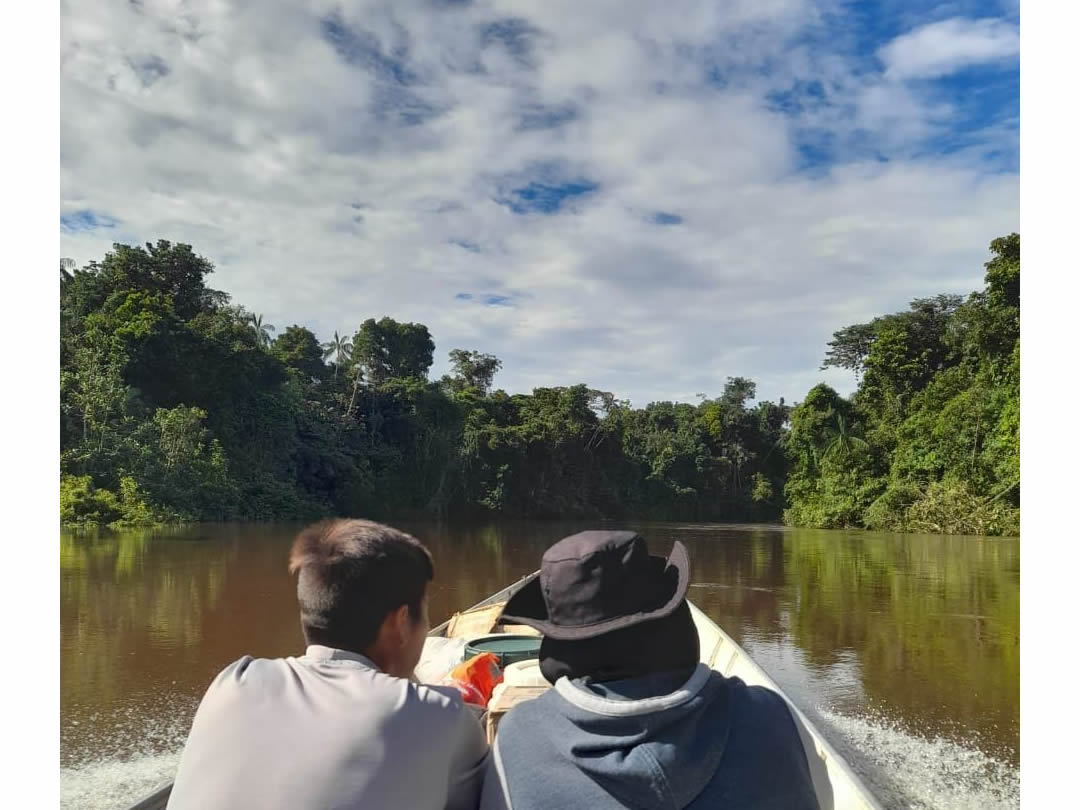Life
‘Life’ is a group of young people which began in 1975 in Sicily, who want to live human and Christian values with commitment and express them through artistic language. Shows, music, songs, dances to propose a message to the public, to say something that helps people reflect and pray. They want to bring the Christian proposal to theatres and squares in a new way of evangelising.
I had seen them at work on the stage of one of the biggest theatres in Catania, in front of more than 1,800 young people from the city’s schools. They were presenting a musical that helped to reflect on the value of life in youthful language. Singing, dancing, lights, special effects kept the youngsters nailed to their seats all morning. On my way out, I wanted to mingle with the spectators to catch a few comments: “Really cool! I loved the ballets!”… “Did you see that there was also a live orchestra? I’d like to ask if I could join”… “They’re about my age, but what voices!…”.
I, too, was impressed by that group of young actors, not only because of the quality of their performance, but also because even before the audience arrived I had seen that they were working hard to get everything in order: there were some positioning the floodlights, some testing out the microphones, some setting out the costumes, some at the last rehearsal of a ballet and some doing vocals to get their voices ready. Everyone knew what they had to do and carried out their task responsibly. When the theatre was full, before kicking off, they all disappeared behind the closed curtain. I wanted to peek in and saw that they were all there in a circle for a short prayer before the performance began. I was struck by this fact. I knew that it was a Salesian group belonging to the CGS Association (Cinecircoli Giovanili Socioculturali); so, I decided to go and see them at their headquarters to find out more and get to know them better.
I found a very simple setting: a small room for rehearsals and meetings, a small room for recordings, a mezzanine with wardrobes for costumes, a storage room for scenes and lighting and sound equipment, but above all I found a lot of creativity and Salesian spirit. Welcoming me was Armando B., founder and head of the group, as well as composer of all the music, and five other young men. I asked them to tell me a little about their story.
“Our group,” Armando said, “is called LIFE, Vita! Yes, because we are together to discover the meaning of life and to announce the joy of life to the world. We began in 1975 out of the desire some of us had (we were 15 years old then) to be together, bound by our love for music. We have come a long way since then! Over the years, the need has gradually matured to deepen our faith, to live human and Christian values in a committed way, and to express them through artistic language. Thus, our musicals were born, shows entirely conceived and produced by us: from the music to the lyrics, the costumes to the sets, from the lighting to the sound… and we have also recorded many cassettes and CDs.” “See here on the walls the posters and photos of our shows over all these years,” Paolo added.

‘Life’ was the first original show that tackled the problem of drugs and dialogue within the family; then there was ‘Welcome Poverty’, which helps us reflect on consumerism and the true freedom that comes from detachment from riches; there juvenile delinquency and Don Bosco’s educational proposals in ‘My name too is John’; the choice in the last in the musical ‘The Girl from Poitiers’, the culture of life versus the culture of death in ‘Open up to Life’; the wisdom of the Gospel overlapping the wisdom of the world in ‘What if it wasn’t a Dream?’; ‘Stories for Living’, small stories of today and yesterday in the light of Salesian spirituality; ‘3P’ – Padre Pino Puglisi, the story of the priest victim of the Mafia; ‘On the Wings of Love’, presenting the experience of the Servant of God Nino Baglieri; and ‘What Remains is Love’ on the message of St Paul.
“Recently we staged ‘Baraccopoli,’” Giuseppe said, “a musical that touches on the theme of the marginalised and solidarity. The latest, however, is a play about Pope Francis and his message to the people of our time. It is entitled ‘From the End of the World’.”
Sara interrupted him and, showing me some DVDs, added:
“You see, we have also tried our hand at film production and, in addition to the film versions of ‘Stories for Living’ and ‘Open to Life’, we have made three other films – ‘God’s Athlete, Placido and Nicolò’ -, which have received special prizes and awards.
I was truly amazed at the material documenting so many years of activity, and ventured a question:
“What drives you to do all this?”
Alessandra smiled and answered:
“Ours seeks to be a new way of doing evangelisation, of bringing the Christian proposal to the theatres and squares. The experience of our tours is always exciting: we have travelled from one end of Italy to the other and we have also been abroad. Each time it is a new boost for us because at the same time as we ‘announce’ something, the awareness and conviction of what we are proposing to others grows.”
Armando added:
“In order to be able to say something to others, it is essential to have lived it in real time first! This is why our CGS. invests a lot in formation: every Saturday we meet to pray together and every Sunday we have our formation meeting. In the summer we set aside ten days or so for ‘expression camp’, days in which we reflect on God’s word and express our reflections creatively (music, dance, mime…). At times during the liturgical year, we meet for a day of retreat. It is a proposal, ours, that we offer to many young people in our area and beyond, of different age groups. The older ones accompany the younger ones. Many come to us attracted by the music and the desire to find friends and form a group, and gradually become involved in a journey of faith.
“Yes,” Simone said, “I can testify with my own story: at the beginning I came to the group only because I liked acting and also wanted to learn to play an instrument. Here I found both, but above all I met people who knew how to listen to me and who showed me a way of life different from the one I had experienced until then. Here I also began to get to know the Gospel.”
I felt good with them and stayed to chat until the evening. I learned about the many experiences of these young people, such as going to pubs to play music and engaging young customers in conversations on certain topics that would encourage them to reflect on their lives, or going to bring help to the homeless on particularly cold evenings, or running an oratory in the neighbourhood in the Don Bosco manner, or animating youth gatherings at diocesan or regional gatherings.
I went back again one Saturday to see them. It was all a construction site: Joseph was animating the meeting of the pre-adolescents who were crammed into the small room usually used for recordings, three other young people were painting the scenes of the show being planned, a small group was rehearsing the various voices of a song, while two were intent on writing on sheets of paper. “Let’s prepare tomorrow night’s meeting for the families,” they said. “There will be couples who belong to the group, but also the parents of our boys. We also want to involve them in a formative journey.”
So much life in this group, I said to myself; they really have chosen the right name: LIFE!
Photo gallery “Life”
